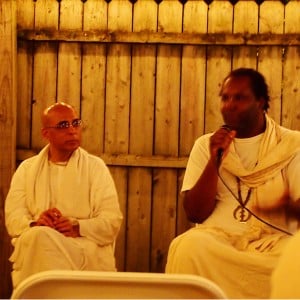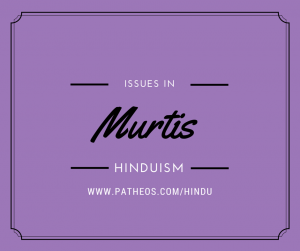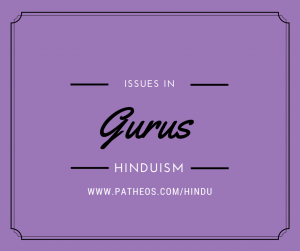When I was in college, everyone used to go out at night and walk across High Street to get late-night food. I’d done it a thousand times. Everyone I knew had. Often it was a group of young women, almost all of us white or Asian. We traveled in groups because of rumors that it was unsafe, but we never felt unsafe crossing that street that divided campus from the surrounding city.
One night two friends of mine went out for food and were stopped by police. These friends were male, a black man and a Mexican man, both 18 years old. Like the friends I frequently crossed High Street with at night, these friends lived in the honors dorm (known more for its late-night studying than partying). On campus, in class, at the library, it was easier to believe in equality, but when they crossed High Street that night, they were forced to their knees at gunpoint by police. The police refused to believe they were university students and demanded to know what they were doing so close to the school. They had their student IDs in their pockets, but were not allowed to reach into their pockets for them. So they knelt at the feet of police officers who had no probable cause for stopping them. They just didn’t “look like” biochemistry majors to the police. Two of my blonde roommates didn’t “look like” the other engineering students, but blonde girls don’t tend to make the police suspicious.
I don’t believe that every act of police brutality is racially-motivated. But that night, we all knew that my friends, who luckily made it home safely, were indeed racially profiled.
The black man was someone from my hometown, who had grown up in an upscale neighborhood called Country Club Hills and attended a school where he was one of the only black students. He was smart, funny, and a popular running back on our local football team. Most of the students at our school were Italian-American Catholics, so we belonged to a small group of “others.” At a school where most of the people also knew each other from church and CCD (classes Catholic kids take in the evening), even the few Baptists felt like outsiders. The one Jewish kid was teased so badly he transferred to private school, and my Chinese-American best friend was constantly asked, “What are you?” by people who then demanded she say a few words in Chinese. It was not a place without racism, but being a well-liked member of a small community did not prepare my friend for being stopped on a sidewalk for “walking while black.” Perhaps if he hadn’t had a knee-destroying football injury, he would have been on the college team, and he could have used his football privilege. But that night, he was without privilege. He was from an upper middle class family, but he was dressed like Will, not Carlton. He was a straight-A student, but he couldn’t reach into his pocket and pull out his student ID without risking his life. He was just someone who looked like he didn’t belong. He was just a young black man.

It’s easier to write about these events from 20 years ago than to write about all that’s going on in the news right now. Twenty years is enough time to process things. I’m having trouble processing current events.
A few nights ago someone in my town was shot by police. His mother had called them because he was dealing drugs out of her home. A little while later, she was yelling, “You killed my son!” They hadn’t, though. He’s going to live. He was “brandishing” a gun, according to officers (his mother thought he’d left it inside). It was rainy that night and he couldn’t be transferred to the hospital by helicopter. They aren’t releasing his condition other than to say that he’s going to live. This was a case of a drug dealer with a weapon, but the general feeling I’ve heard expressed around town is, “Thank God he’s going to live! We don’t need those protests coming here!” That and, “His mother should never have called the police — doesn’t she watch the news?” They haven’t actually released information about his race or that of the officer involved, but this is what people are saying.
Remember when armed guys were going into places like Chipotle to prove their so-called Second Amendment rights? Nevermind that carrying a semi-automatic weapon into a restaurant has nothing at all to do with a well regulated militia protecting the security of a free state. I told my husband, “They’re just parading their white privilege.” Around that time, I was scoping out the new books section of the library, and I spotted a book about concealed carry. It had a white woman on the cover. I showed my husband and asked, “Can you imagine a book like this with a black man on the cover? Or a Middle Eastern or South Asian man?” We couldn’t.
It’s legal to carry a concealed weapon in Ohio, but Tamir Rice was killed for carrying a toy gun. (If you watch the video, he was given no chance — they drove up and gunned him down.)
This is what I’ve told my children their entire lives: The police see the worst of any community. Any bad thing that happens, things you have no idea about, they’ve seen up close. They know all the worst people in town. People call them when they’re afraid. They arrive on-scene prepared to deal with bad guys.
Once, when I was in high school, police burst through our front door, guns drawn, and one of them yelled, “Where’s the baby?!” No one had any idea what they were talking about and they quickly realized they had the wrong address and left. We were lucky. When police burst into a Detroit home in 2010, seven-year old Aiyana Jones was shot and killed by an officer who said the girl’s grandmother reached for his gun (the grandmother said she was reaching for her granddaughter, as police had thrown a flash grenade through the window).
I know that police deal with things the rest of us don’t even want to think about. In 2008, a woman who worked at a gas station by our home, who sold slushies to my kids in the summer, was kidnapped from work and held hostage by a man in an apartment complex a few blocks away. She was captive there and repeatedly raped over a number of days. These are the sorts of situations police have to deal with. They walk into confrontations with men who would kidnap and repeatedly rape a young woman. They are prepared to rescue the “good guys” and arrest the “bad guys.” I don’t think they go to work each day looking for innocent people to harass. I don’t think it’s a racist organization determined to exterminate African Americans. But something is broken.
There were riots in Los Angeles a few months before I graduated high school. Police officers beat Rodney King with batons and were acquitted. All these years later, what has changed? Well, now they’re shooting people, not beating people. And now they aren’t being acquitted — they aren’t even being indicted. Progress?
I don’t think police are the enemy. I think they take seriously their duty to serve and protect. But something is broken.
The use of deadly force should be a last resort, even against armed criminals. I remember a stand-off at a Kroger grocery store about fourteen years ago. A man was holding a woman at gunpoint at the checkout, and the entire store was on lockdown. After a period of deliberation, a police sniper killed the gunman with a single shot to the neck. They made that decision deliberately and took it seriously. That’s a situation in which police might need to use deadly force to protect innocent lives. Eric Garner was unarmed and not a danger to anyone when he was tackled and placed in the chokehold that ended his life. That’s a situation in which the use of deadly force is unjustifiable. Something is broken.
I don’t know how to fix it. But I see that something is broken.














